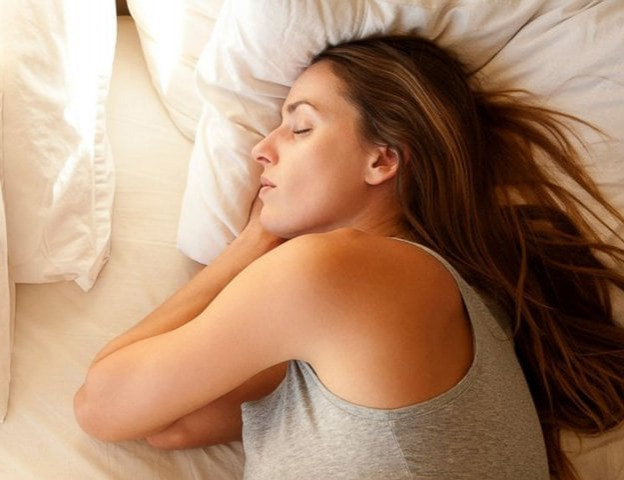8 ways to lose weight in your sleep
Find out here!

PHOTO:FIlE
Whatever your answer is, you’re wrong. Chances are that you actually ate more frequently than you recall. Most of us consume several mini-meals into our day and as it turns out, the longer we stay up, the more calories we consume.
Therefore, scientists have been studying that the best ways to cut down on calorie intake while sleeping. A few simple tweaks to your nighttime routine can make a big difference. As compiled from Eat This, here are eight ways to shrink your waistline after hours.
Pack on protein
Or better yet, a bit of turkey. Tryptophan, an amino acid found in most meats, has powerful sleep-inducing effects. A recent study among insomniacs found that just 1/4 gram is enough to increase hours of deep sleep significantly. And deep sleep translates into easy weight loss.

Schedule a tea time
“There is something about the ritual of sitting down to a soothing cup of tea that tells your brain to slow down and relax,” says Julia Falamas, director of programming and operations at Epic Hybrid Training fitness studio. “Some of the best teas for sleep are chamomile, peppermint, lavender and valerian, which actually does have some sedative properties.”
Eat lots of whole grains for lunch
You know to avoid fatty foods before bed, but did you know that it’s best to eat your complex carbohydrates at lunchtime, not dinner? “Serotonin converts to melatonin in stage 3 REM sleep, and serotonin is sourced from whole-grain complex carbohydrates. So you don’t need to have carbs before bed to sleep, just have them at some point through the day,” says Cat Smiley, owner of Whistler Fitness Vacations.
Keep nighttime meals small
While you shouldn’t go to bed starving, you also shouldn’t be totally stuffed. When you eat a large meal before bed, your body is working to digest it long into the night — and if it’s still worked up, so are you. The later you fall asleep, the less rest you’ll get and you’ll wake up feeling groggy and more likely to reach for calorie-dense items.
Shake it off
Having a protein shake may boost your metabolism, according to one Florida State University study. Researchers found that men who consumed an evening snack with 30 grams of protein had a higher resting metabolic rate the next morning than when eating nothing. Protein is more thermogenic than carbs or fat, meaning your body burns more calories digesting it.
Embrace the cold
A new study published in the journal Diabetes suggests that blasting the air conditioner or turning down the heat in winter may help cut down belly fat while we sleep. Colder temperatures subtly enhance the effectiveness of brown fat which keeps you warm by helping you burn through the fat stored in your belly.
For the study, participants spent a few weeks sleeping in bedrooms with varying temperatures: a neutral 75 degrees, a cool 66 degrees, and a balmy 81 degrees. After four weeks of sleeping at 66 degrees, the subjects had almost doubled their volumes of brown fat.
Take a hot shower
Used to bathing in the morning? Listen up. “A hot shower is great for ensuring a good night’s sleep because it can help relieve tension and relax sore muscles. Additionally, it can increase the level of oxytocin — a "love" hormone released by your brain — which can be very soothing,” says Julia.
 PHOTO:FILE
PHOTO:FILEThe heat from the shower also raises your body temperature, resulting in a quick drop in temp when you get out and towel off which helps relax your entire system.
Say no to chocolate
Any chocolate bar that contains at least 70% cocoa is one of our favourite low-sugar snacks or desserts because of its high concentration of antioxidants and stress-busting abilities.
Unfortunately, if eaten too late at night, that bar could be the reason you can’t fall asleep. Dark chocolate contains caffeine, which can prevent your body from shutting down when you want it to.
Have something to add to the story? Share it in the comments below.



















COMMENTS
Comments are moderated and generally will be posted if they are on-topic and not abusive.
For more information, please see our Comments FAQ